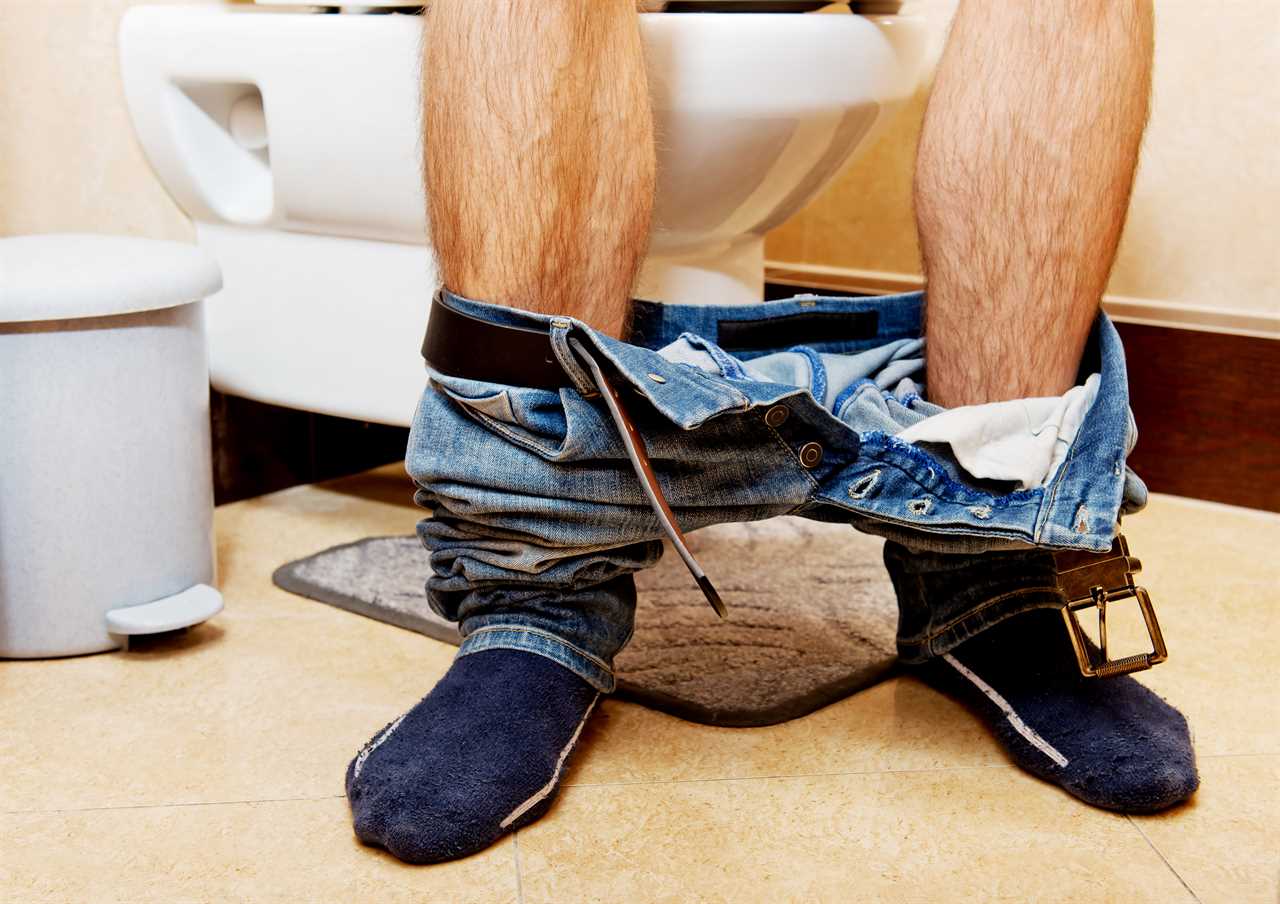FOR many of us, talking about our bathroom habits is a step too far in the embarrassment stakes.
But like it or not, everyone poos, and we really must start talking about it – it could be the difference between life or death.

It’s worth keeping on eye on your bowel habits so you know when a visit to the GP is in order
Dr Sarah Jarvis, GP and clinical director of Patientaccess.com explained that bowel movements are affected by a “huge range of factors”.
“Some of these you can’t influence – even if fed an identical diet, some people would open their bowels more often than others,” she added.
However, it’s still worth keeping on eye on your bowel habits so you know when a visit to the GP is in order.
How many poos a day is normal?
According to Dr Sarah most people have a “fairly regular pooing pattern”.
Studies suggest 98 per cent of people go between three times a day and three times a week.
And many people tend to go at about the same time every day.
“Some medical conditions, such as inflammatory bowel disease or diverticular disease, can lead to frequent, loose bowel motions,” she added.
“But if you don’t have an underlying medical condition directly affecting your bowels, many of the factors that determine how often you open your bowels relate to your diet and lifestyle,” she explained.
Physical activity, for example, can help stimulate peristalsis – co-ordinated movements of the rings of muscle around your bowels that propel food through your digestive system.
So being physically active isn’t just good for fitness levels – it can help keep you regular too.
What consistency is normal?
Many medicines can cause looser stools or constipation as a side effect, the expert said.
Some of these include:
- Codeine-based painkillers, sometimes called opioids – this includes combination painkillers such as co-codamol and co-dydramol, as well as very strong painkillers such as morphine
- Some antidepressants
- Iron tablets
- Some medicines used for overactive bladder
- Parkinson’s disease treatments
“If you’re taking medication and you feel it might be linked to constipation, your pharmacist will be happy to advise,” she said.
“Your poo is made up of a combination of food that hasn’t been absorbed into your system, waste products, bacteria that live naturally in your gut and water.
“Changes to your diet and lifestyle can alter all of these,” she explained.
Including more fibre in your diet can help helps “bulk out your stools”, allowing you to go more regularly and with less straining, she explains.
Examples of fibrous foods include: vegetables, fruits, pulses, beans and lentils
“If you’re dehydrated, more water from your gut will be reabsorbed into your system.
This makes poos smaller, harder and more difficult to pass,” she adds.
Keeping an eye on what’s ‘normal’ for you though is crucial, as is being aware of the signs and symptoms of bowel cancer.
The five red-flag symptoms of bowel cancer include:
- Bleeding from the back passage, or blood in your poo
- A change in your normal toilet habits – going more frequently for example
- Pain or a lump in your tummy
- Extreme tiredness
- Losing weight
If you notice any changes to your usual habits, don’t be embarrassed, speak to your GP.
Trending In The News launched the No Time 2 Lose campaign in April 2018 – to call on the Government to lower the screening age to 50 and raise symptom awareness. As a result people in their 50s started to be invited for screening last year.
Meanwhile, here is how you should really be pooing – according to a pelvic floor expert.






